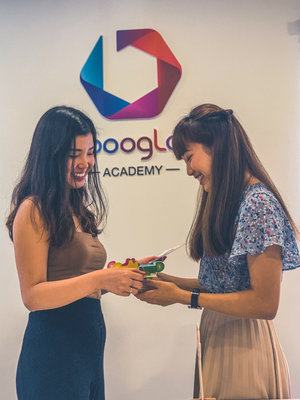Tech start-up Boogle’s Bursary to empower local talent

A search engine promising unbiased search results and data privacy may sound like a tall order, but to Boogle, this goes a long way in empowering people in today’s digital world.
Now, this Singapore tech start-up wants to go one step further – launching a bursary for future computer scientists. For less privileged NUS School of Computing undergraduates, the bursary will significantly lighten their financial burden.
Launched in 2017, Boogle is the brainchild of Singaporeans, Mr Patrick Lee and Mr Darren Goh.
Alarmed by how the internet giants handle users’ data, the founders set out to create an alternative search engine.
Their solution: Boogle – a blockchain-powered search engine that protects user privacy and provides unfiltered access to information.
Boogle is also looking to roll out electronic payments, web messaging, email and cloud services.

Though Boogle has global ambitions, home is where Boogle’s heart is.
The Singapore-headquartered Boogle is a firm believer of grooming local talent. Hence, they set up the Boogle Bursary at the National University of Singapore.
“There are members of the Boogle team who had struggled with financial issues and juggled a hectic study-work life,” said Mr Fi Leong, Boogle’s Chief of Staff.
“The founders of Boogle understand the hardships that students from financially challenged backgrounds are facing. They believe everybody should be given a chance to excel without financial worries or constraints.”
Ideally, the recipients should be innovative, fun and bold – characteristics embodied by Boogle and its founders. Think tech innovators who take calculated risks whilst having fun at work.
Mr Leong affirmed, “It is our moral duty to contribute back to society, to strengthen the foundation of our future generations. We hope to improve not just the lives of individuals, but society as a whole. By empowering our people, they’ll hopefully create and innovate without fear of failure. Our wish is to foster a spirit of innovation and community amongst the wider society.”






